It has been quite common for prominent projects especially, to obtain, or aim to obtain a certificate which supports green building practices in Malta. The most commonly referred to standards and the most sought after are:
LEED (Leadership in Energy and Environmental Design): This is a globally recognised green building certification system that provides a framework for healthy, efficient, and cost-saving green buildings.
BREEAM (Building Research Establishment Environmental Assessment Method): Another widely used standard that assesses the sustainability of buildings in terms of energy use, health and wellbeing, pollution, transport, materials, waste, water, and ecology.
Additionally, there are local initiatives like the Green Paper on Greening Buildings in Malta, which focuses on promoting green walls and roofs for residential, commercial, and industrial buildings.
'Green' certified materials
Using green certified materials to build or renovate a building is a practice used basically to mainly achieve three different goals:
- While Malta lacks a native green building standard for certifying new or renovated buildings within specific sustainability and energy efficiency parameters, including renewable energy usage, there is a prevalent reliance on foreign certifications (BREEAM, LEED, among others) whose adoption is also based on the fact that building materials already certified according to their standards or with specific technical characteristics are being used during the works.
- Even without aiming for a specific green standard as defined by certification systems like BREEAM or LEED, utilising materials previously certified under these standards ensures the product adheres to rigorous environmental sustainability criteria. Environmental sustainability encompasses not just the building's total environmental impact over its lifespan but also, crucially, the production processes of the construction materials and their recyclability.
- Maltese "Green loans" are an initiative developed by several banks operating in the Maltese market designed to support sustainable living by offering favorabile terms for energy-efficient investments.
Typically, eligibility for these financial instruments hinges on obtaining an Energy Performance Certificate (EPC) with a rating below 55 and a low CO2 emissions score. Certain banks permit the use of these loans for the installation of energy-efficient features like solar panels, thermally insulated windows and doors, and building insulation. These criteria ensure that the loans are used to support sustainable and energy-efficient investments.
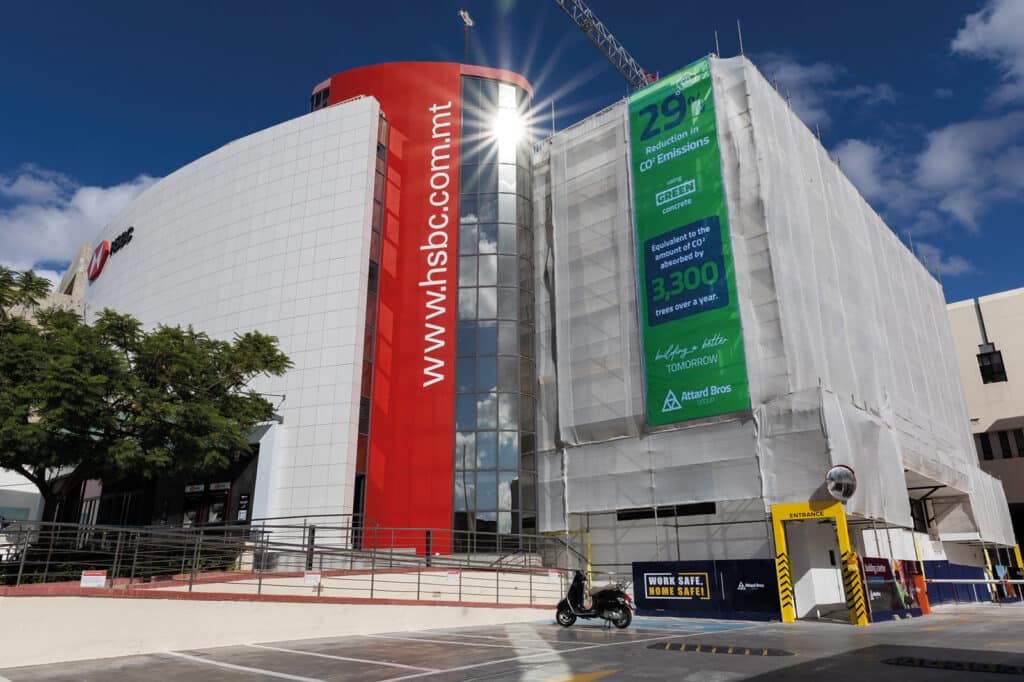
Why having your project "Green" certified?
- In line with national efforts and the European Green Deal, for a Developer or Architectural Firm, designing a building according to established green standards means bringing to market a building that will retain its value in the future when stricter sustainability and energy standards will be made mandatory at a global level.
- For individuals planning to invest in constructing their own home or renovating their existing one, requesting the use of green certified materials to their designer and builder is a step towards ensuring a healthy living environment, devoid of harmful emissions, and sustainable both environmentally and energetically. As already highlighted in these pages, developing an energy-efficient design today secures the investment's value for the future, regardless of the potential fluctuations in energy prices and availability.
A building constructed from sustainable materials is the one that maintains environmental integrity throughout its lifecycle from the production of its construction materials to its eventual demolition and recycling. This approach reflects the dedication of the architects, builders, and clients to environmental stewardship and societal responsibility.
The ‘green’ certified materials that Attard Bros Construction Materials offers for our market:
In line with the evolving market requirements in terms of environmental sustainability and with the ongoing national efforts, Attard Bros Construction Materials has been dedicated to providing the Maltese market with products designed to mitigate environmental depletion:
- Materials reducing quarrying,
- Based on non-polluting raw materials of either organic or mineral origin,
- Materials based on the use of recycled raw materials and possibly still recyclable at the end of their life,
- Products which are not harmful during processing or installation, with low or no emissions.
Structural Elements
A comprehensive range of structural and non-structural products to create load-bearing elements and partitions based on materials with reduced environmental impact and capable of contributing to earning scores for the leading ‘Green’ certification schemes
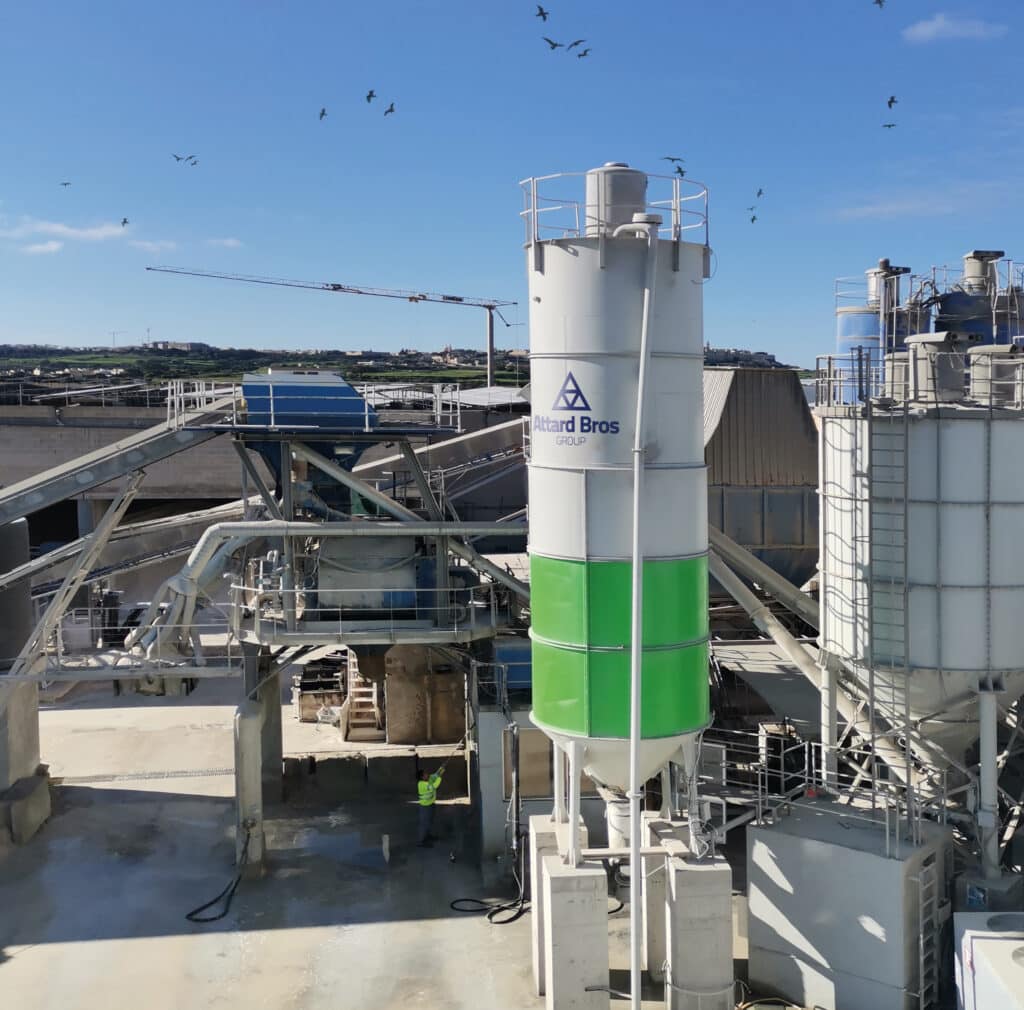
Attard Bros Green Concrete
Our green concrete is an innovative mix that uses cement of CEM III grade and achieves a 29% reduction in CO2 emissions in comparison with standard concrete mixes (CEM I). It is an initiative which yields results in CO2 reduction equal to the annual absorption of 253 trees for every 10 cubic meters of concrete. It can be used in any kind of construction, from buildings to infrastructure and residential projects and is handled in the same way as traditional concrete.

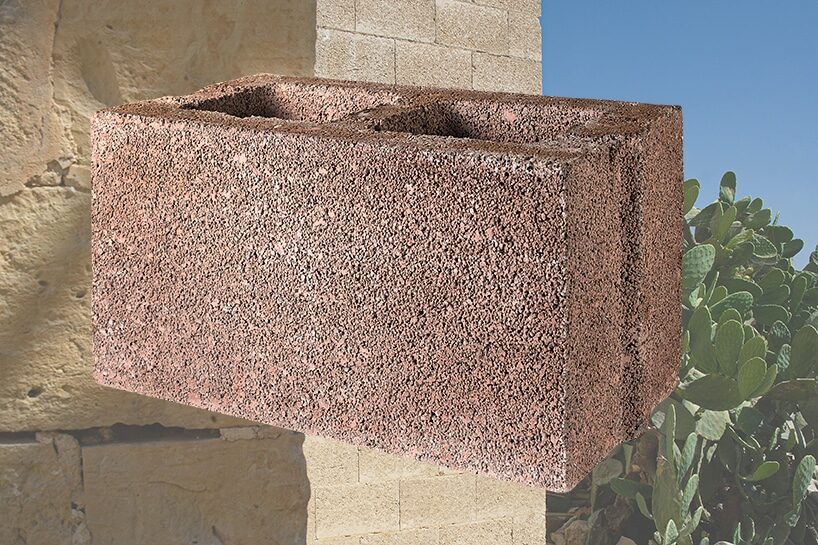
Attard Bros Recycled HCB
In order to meet the demand of the construction industry becoming increasingly conscious about sustainability, as standard, up to 30% of aggregates present in our normal density blocks are recycled as certified by our suppliers. But not only this, we can also offer normal density block made with 100% recycled aggregates always from certified sources. They are available in all standard sizes and are available as both structural and non-structural.

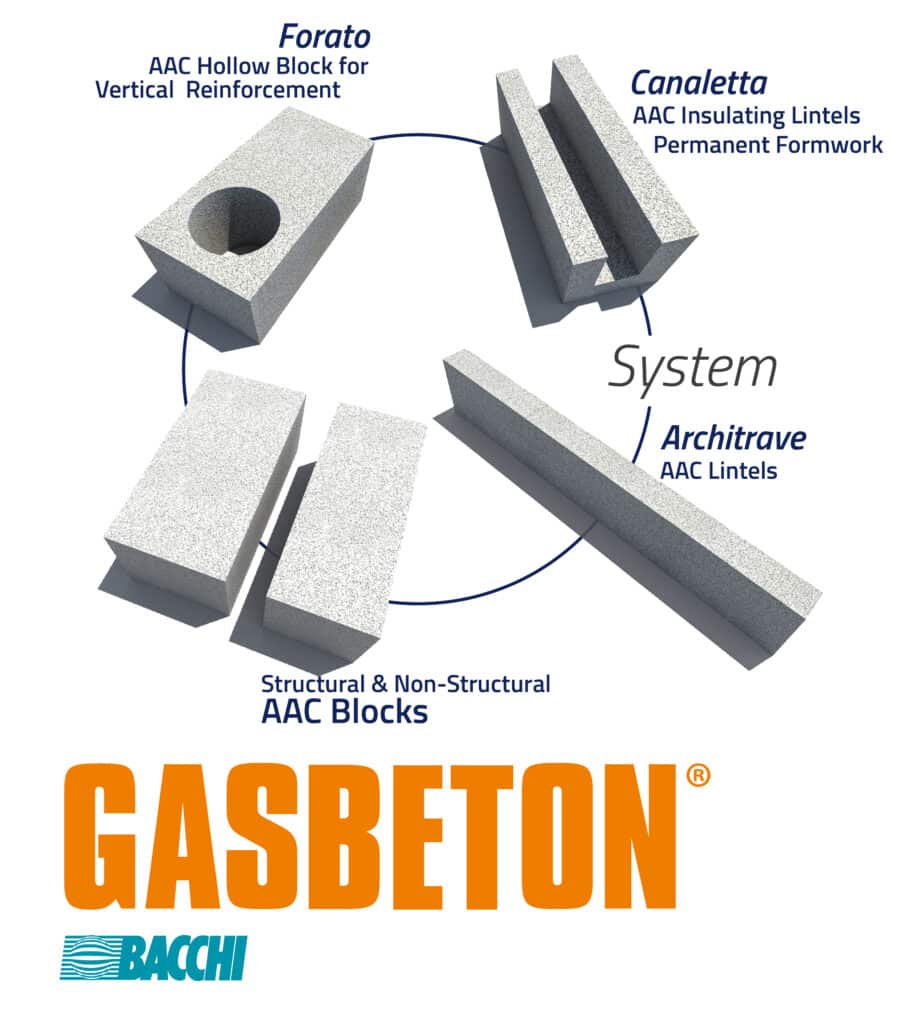
Gasbeton AAC Construction System
Gasbeton® is the construction system developed by Bacchi and imported to Malta by Attard Bros Construction Materials that combines many advantages: modularity, insulation, structural strength, environmental friendliness and sustainability. Today’s increasingly attentive market demands eco-friendly materials that help reduce energy consumption while simplifying the building process. GASBETON® is the right answer to this need

Insulating Materials
An innovative solution in the field of fibrous insulation panels are mattresses made of hemp and kenaf fibres. The strong structure of the natural fibres gives the panel considerable stability and resistance over time, as well as guaranteeing excellent thermal and acoustic insulation performance, superior to other traditional natural-based insulation materials.

Termoküp
Derived from mineral sources, Termoküp insulating boards are breathable, non-flammable, and eco-friendly, making them suitable for creating thermal insulation layers both inside and outside. Their properties ensure a safe and durable insulation solution

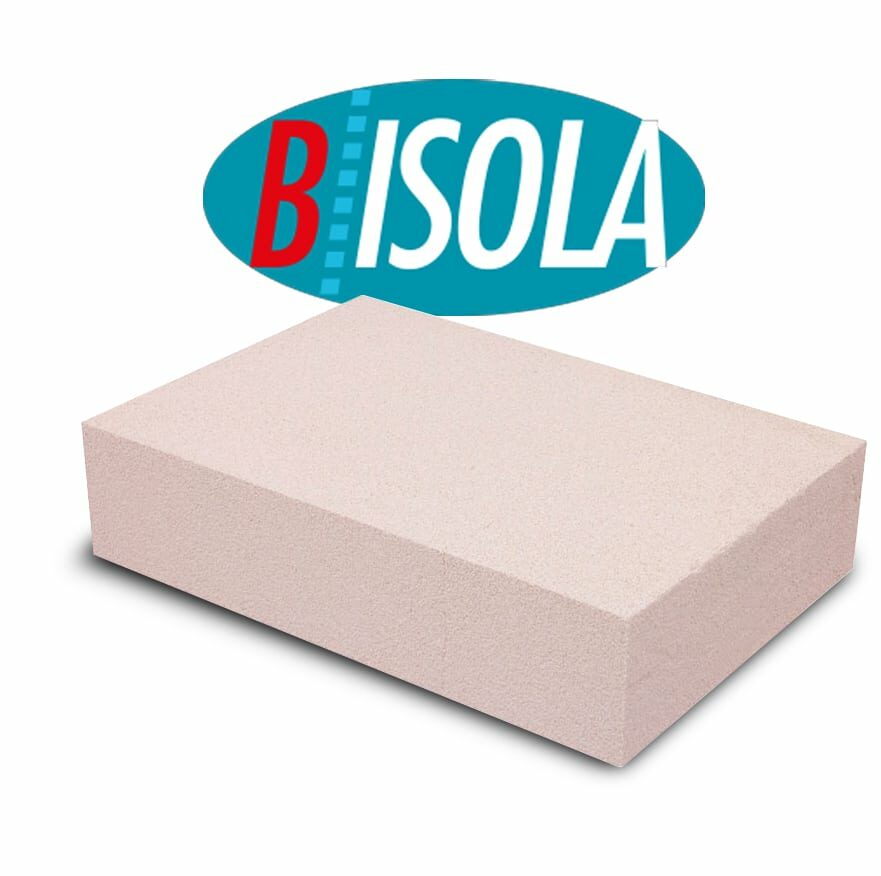
B/Isola
B/Isola are the non-flammable, hydrophilic, fibre-free, mineral thermal insulation panels made from natural raw materials, perfect for the interior insulation of buildings, even without a vapour barrier. It thermally insulates perimeter walls from the inside using a breathable base-material minimizing the risk of mould growth and surface condensation.

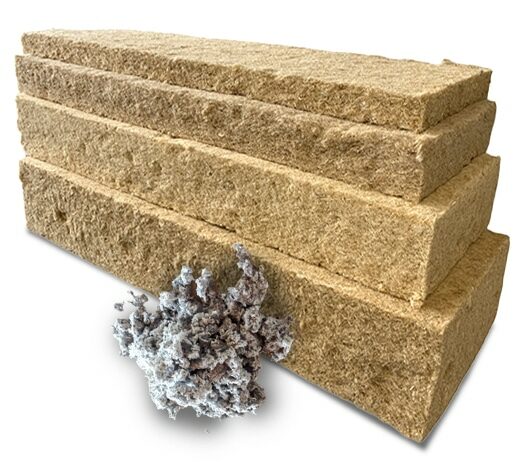
Natural fibers blankets or panels.
An innovative solution in the field of fibrous insulation panels are mattresses made of hemp and kenaf fibres. The strong structure of the natural fibres gives the panel considerable stability and resistance over time, as well as guaranteeing excellent thermal and acoustic insulation performance, superior to other traditional natural-based insulation materials.


Cellular glass based insulation materials
Resilient, strong, and reliable, these foam glass panels are engineered to meet the rigorous demands of construction projects prioritizing longevity and sustainability. They provide enduring protection and complete recyclability at the end of lifecycle for a true circularity of the building process.
Due to the natural properties of glass, foam glass sheets never dampen and are non-combustible at the same time. The technical properties, especially the insulation characteristics, remain unchanged. In this way, the energy concept of your building, and modern urban mining concepts, is reliably secured – for generations.

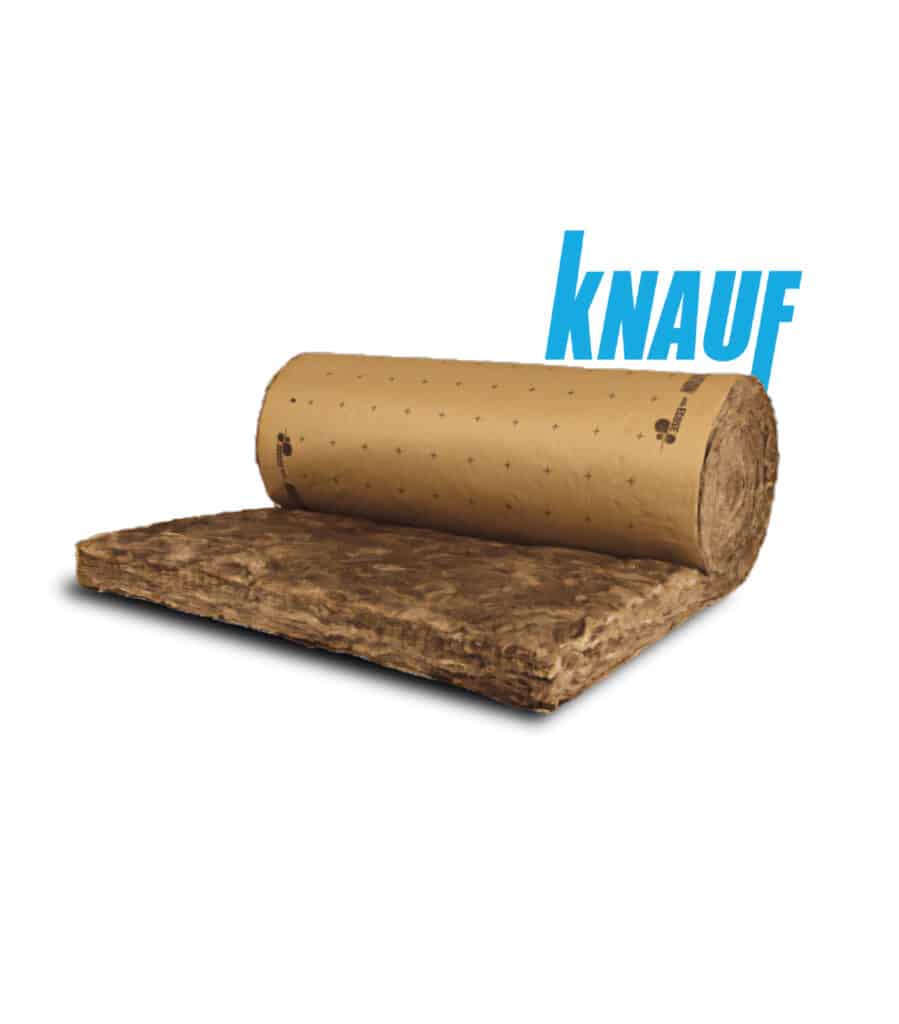
Knauf Ecose Insulating Wool
Thanks to their high material performance and very low emissions, mineral wool products with ECOSE Technology® provide living spaces with excellent thermal comfort, sound protection, maximum fire safety and high indoor air quality, sound protection, maximum safety in case of fire and high indoor air quality.

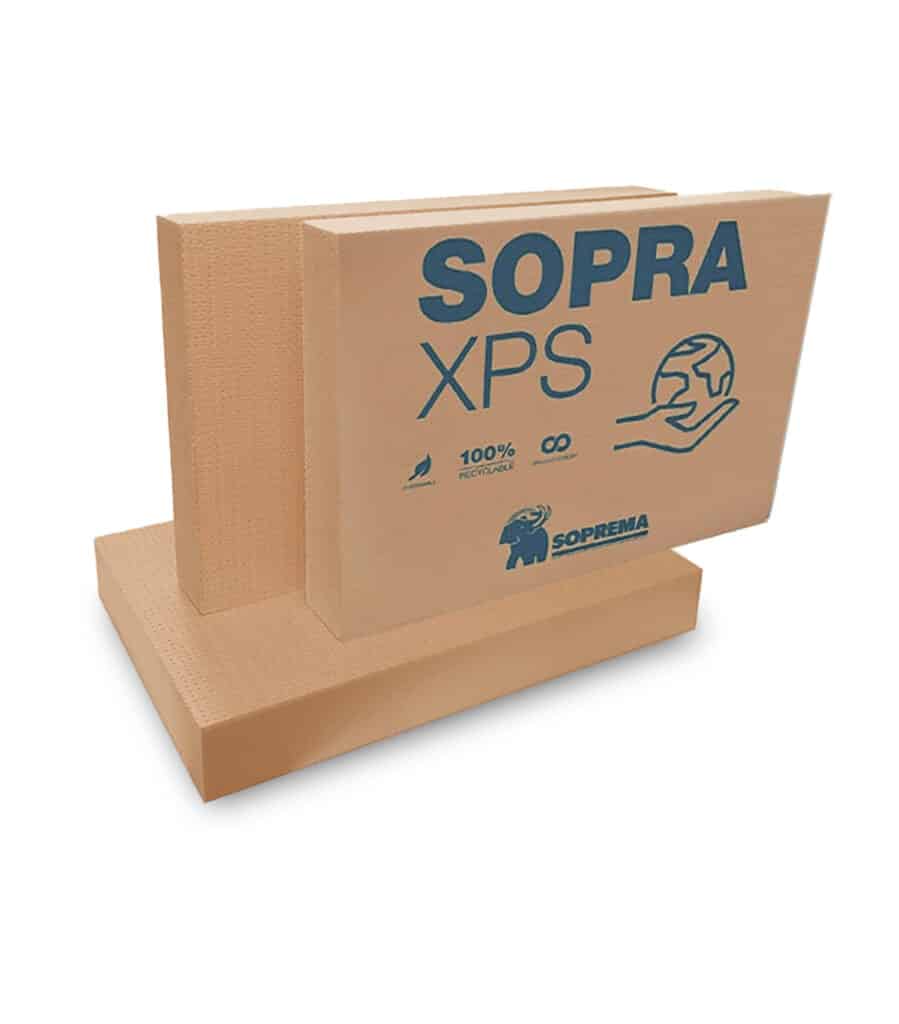
Soprema XPS
Extremely resistant to moisture and with a hig compressive strenght, XPS is the perfect insulation material for inverted roofs and foundations. XPS is resistant to mould, lightweight and benefits from BREEAM A rating.

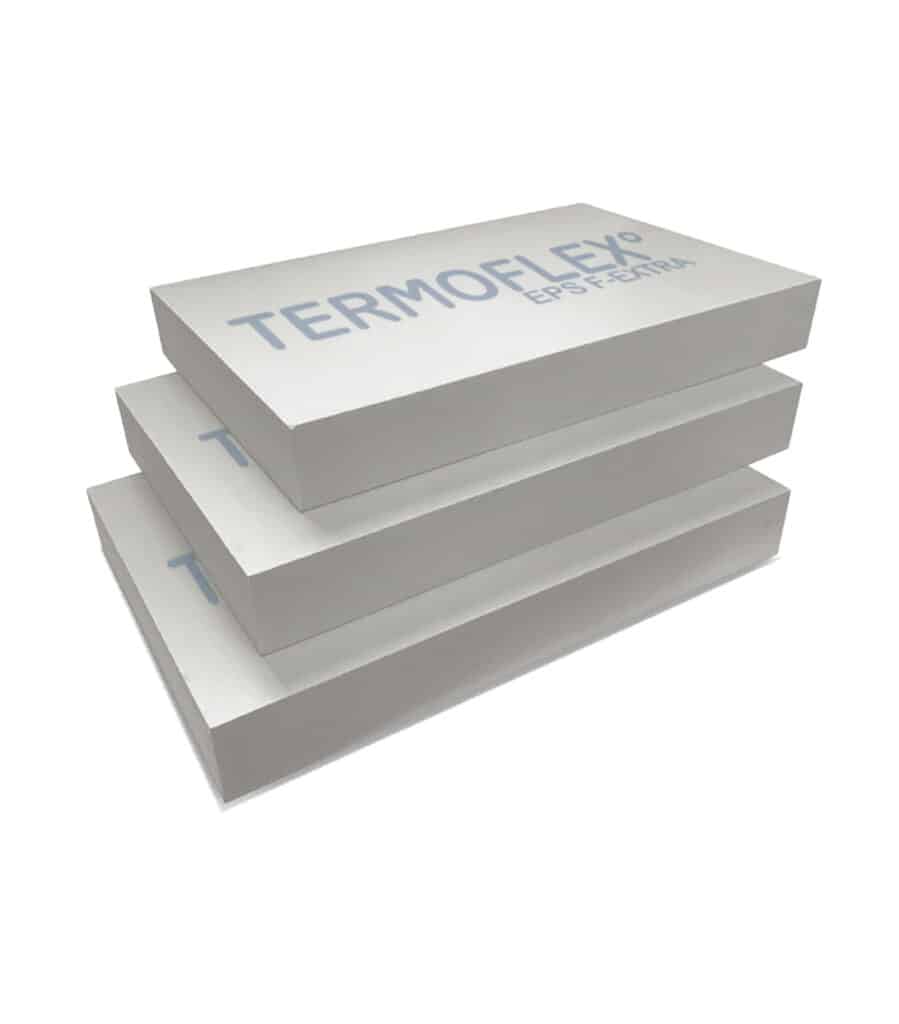
Termoflex EPS
Known to be a cost-effective product, EPS offers excellent insulation and a low diffusion resistance (µ) of 30-70, so it is more breathable. EPS is non-toxic, contains no CFCs or HCFCs. It does not support fungal or bacteriological growth. and can easily be recycled BRE Environmental Profiles give EPS a score of 0.043 over a sixty-year life span, far better than alternative materials.

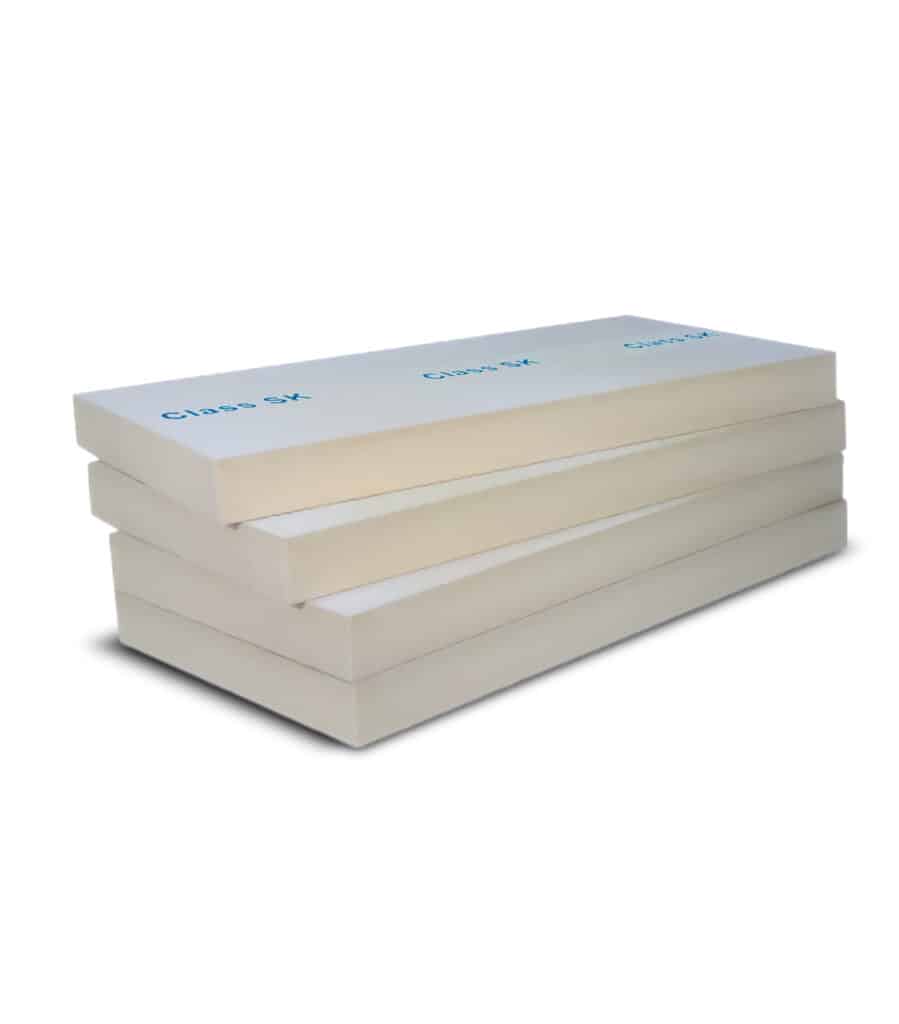
PIR (Polyurethane) Insulation Board
Due to their outstanding insulation capabilities, PIR-based insulating materials allow for a 25% to 70%
thinner layer compared to other insulation materials.
Wide range of different vapour permeability available.
B Class resistance to fire.



